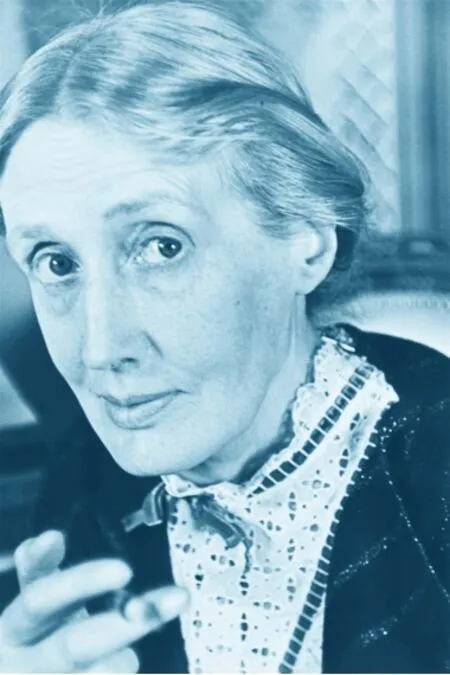Finding the True Poetry in Ordinary Days
⊙ By Rebecca Front ⊙ 翻译:思苇
文学不是空中楼阁,不是镜花水月。哪怕是最天马行空的故事,其本质依旧深深植根于作者所处的时代背景。作为现代主义文学的重要分支,意识流(stream of consciousness)文学的兴盛,正是以伍尔夫为首的一众作家对那个独特年代的思考与感悟……
写作指南针
本文的主题是“意识流”,看似高深,但是通过多位作家生动的举例与描述,大家可以一下子抓住这个流派的基本特点——而这种强调细节的观察,在我们的写作中也有很大的参考意义哦。
Throughout the 1920s, Virginia Woolf published a string of1)groundbreaking [΄ɡraʊndˌbreɪkɪŋ] adj. 开创性的groundbreaking works, in which she set out to2)reinvent [ˌriːɪn΄vent] v. 重新使用,彻底改造reinvent the novel to suit this age of doubt.
Mrs. Dalloway, published in 1925, is set over the course of one day in London, describing the thoughts of two unconnected characters—a wealthy-society hostess and a suicidal war3)veteran [΄vetərən] n. 老兵veteran—as they pass through the city. For Woolf, the novel as a form couldn’t save the world,but it might be able to show the true poetry of the ordinary mind on an ordinary day—a technique known as “stream of consciousness.”
Quentin Bell (Woolf’s Nephew): She wanted to know about what was happening in one’s life, and the most4)commonplace [΄kɒmənpleɪs] adj. 普通的,平凡的commonplace things seemed to surprise her.
Elizabeth Bowen(Novelist): You walked down the street. Why did you walk down the street? Who were you with? What did you see? Did you see a cat? Did you see a dog?
Nigel Nicolson(Writer): She said to me,“Now, tell me what happened today?” And I said, “Well, nothing. I just…I’ve just come home from school and here I am.” And she said, “No, no, no, no, no, that’s no good.Start at the beginning. What woke you up?”And I thought, and I said, “Well, it was the sun coming through the window at school.”And then she5)lean [liːn] v. 倾向,倾身;在英式英语中,其过去式为leant。leant forward and she said,“What sort of sun? Was it a gentle sun or an angry sun?”
Mark Haddon(Novelist): I loveMrs.Dalloway. It does what it sets out to do fantastically well. For me, it reads like a kind of…a piece of6)chamber music 室内乐chamber music. It’s like a7)string quartet 弦乐四重奏string quartet. There’s the same theme running through, and different instruments—different characters—take up these themes at different times. Her point of view8)shift [ʃɪft] v. 移动,改变(方向等)shifts constantly. We’re in someone’s mind. We’re suddenly outside their mind, looking at them from a great height. We can see the future. Suddenly we can see the past. Her consciousness in the novel is like this9)will-o’-the-wisp 鬼火,磷火,幻想willo’-the-wisp which can go absolutely anywhere it wants.

When Woolf went to10)Broadcasting House 演播大厅,此处特指BBC录制节目的演播室。Broadcasting House to speak to the nation, she chose to touch on a subject close to her heart: How the English language, after the11)Great War 第一次世界大战,与World War I同义。Great War, could be freed from the12)burden [΄bзːd(ə)n] n. 担子,重负burden of the past, to live again and create new art.
Virginia: Words, English words, are full of13)echo [΄ekəʊ] n. 回声,回响echoes, memories, associations, naturally.They’ve been14)out and about 外出走动out and about on people’s lips, in their houses, in the streets, in the fields,for so many centuries. And that is one of the chief difficulties in writing today. They’re stored with other meanings, with other memories. Our business is to see what we can do with the old English language as it is. How can we combine the old words in new orders so that they survive, and so that they create beauty, so that they tell the truth? That is the question.
相关链接
伍尔夫主要作品
✧ The Mark on the Wall 墙上的斑点(1919年)
✧ Modern Fiction 论现代小说(1919年)
✧ Jacob’s Room 雅各的房间(1920年)
✧ Mrs. Dalloway 达洛维夫人(1925年)
✧ To the Lighthouse 到灯塔去(1927年)
✧ Orlando: A Biography 奥兰多(1928年)
✧ A Room of One’s Own 一间自己的房间(1929年)
✧ The Waves 海浪(1931年)
✧ Between the Acts 幕间(1941年)

参考译文
在20世纪20年代,弗吉尼亚·伍尔夫出版了一系列极具开创性的作品。在这些作品里,她对小说这种体裁进行了重新打造,以适应这个充满怀疑的时代。
小说《达洛维夫人》出版于1925年,故事的背景是伦敦的一天,讲述了两个毫无关联的人物(一个是上流社会的女主人,另一个则是准备自杀的退伍老兵)在城中穿行时的各种思绪。对伍尔夫来说,小说这种文学形式并不能拯救世界于水火,但它也许可以展现出普通人的平常一日中蕴含着的无限诗意——这种写作技法就是“意识流”。
昆汀·贝尔(伍尔夫的外甥):她很想知道别人的生活中发生了什么事情,就连最为平常的琐事都能让她大吃一惊。
伊丽莎白·鲍恩(小说家):你沿着街道散步。你为什么会去散步?你和谁一起散步?你沿途都看见什么?你看到了一只猫?还是一条狗?
奈杰尔·尼科尔森(作家):她对我说:“告诉我,今天发生了什么事情?”我说:“呃,没什么事情。就是……我放学回家,就来你这儿了。”她说:“不不不,不是这样,从头开始讲——你是怎么醒的?”我回想了一下,然后说:“哦,阳光透过学校的玻璃窗照进来,我便醒了。”她身子前倾,问道:“怎样的阳光?是柔和,还是刺眼的?”

马克·哈登(小说家):我很喜欢《达洛维夫人》,这本小说完美地实现了它的创作初衷。它读起来就像一首室内乐、一段弦乐四重奏,相同的主题贯穿其中,而各个人物就是不同的乐器,一时是你在表现主题,一时是他在表现主题。她的视角不断变换,我们时而在某人的意识里,突然就离开他的意识,到了另外一个高度俯瞰他的生活。我们可以预见未来,突然又回到了过去。她的意识就像鬼火一样飘忽,在小说中四处游走,肆意而行。
当伍尔夫走进英国广播公司的演播厅,准备向整个英国发表讲话时,她选择了一个最贴近其内心所思的话题:一战过后,英语该如何卸下历史的重担,重获新生,创造新的辉煌。
弗吉尼亚:语言——英语词汇中充斥着各种回声、记忆与联系,这是再自然不过的事情了。几个世纪以来,语言随处游走,活跃在唇舌之间,回荡在屋里屋外,传遍大街小巷,越过田间野外。而这正是今天我们在写作中遇到的棘手难题之一。语言中满载着其他的含义与记忆。我们所要做的,就是看看我们该如何处理古老的英语,还其本色。我们该如何将古老的词汇融入全新的语序,从而让英语得以存续下去,创造文学之美,不断揭示真相?此乃问题所在。

